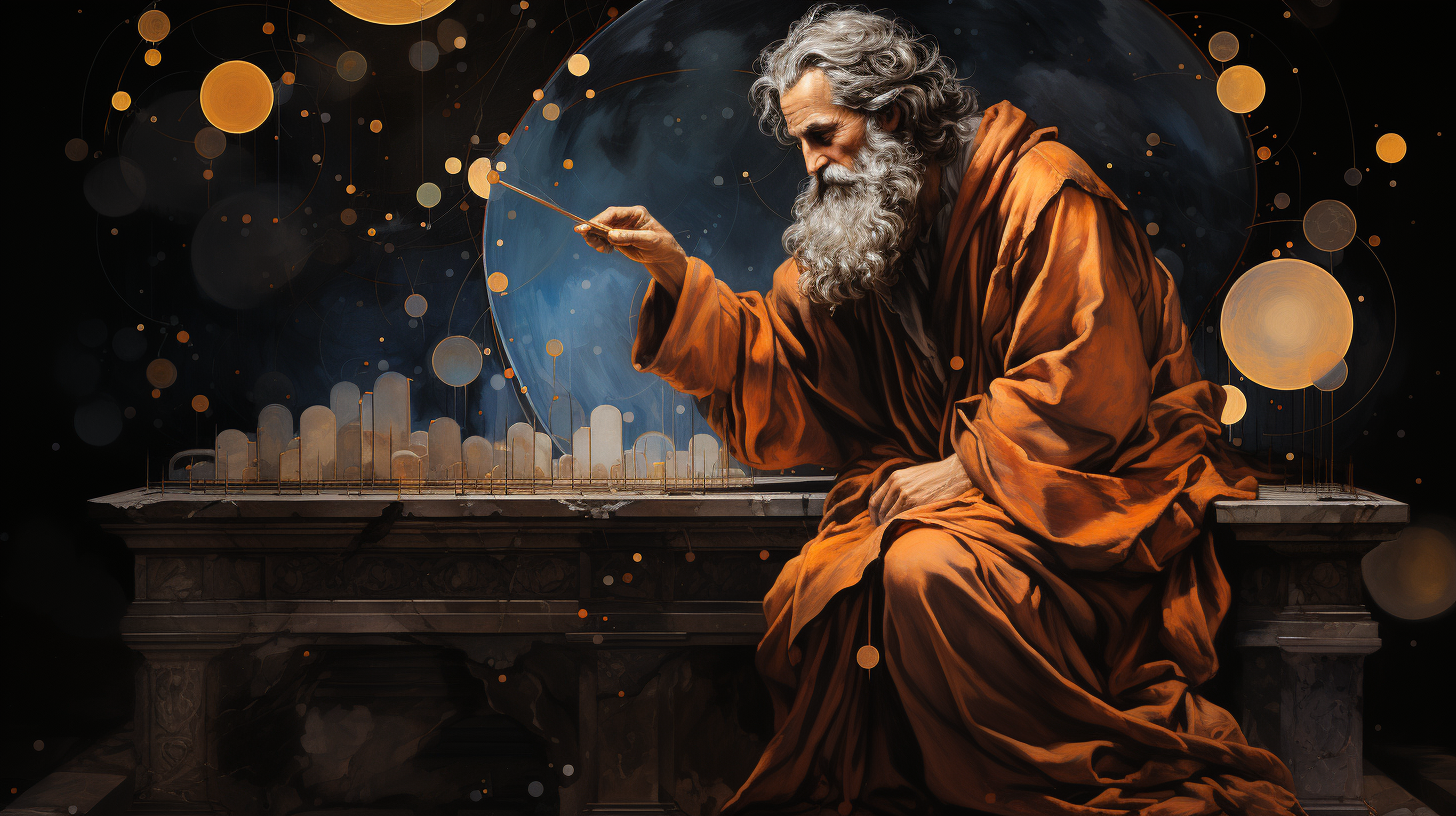Introduction
In the annals of time, remarkable individuals have emerged, leaving behind legacies that endure through ages, imparting timeless wisdom. Pythagoras, the eminent philosopher and mathematician from 6th century BC Greece, is one such figure. His quest for mystical enlightenment in Egypt not only enriched his own wisdom but also laid the groundwork for human knowledge.
This account delves into Pythagoras’ world, revealing the intricate connection he unveiled between mathematics and music, culminating in a concept of universal harmony that resonates across epochs.
Exploring Egypt with Pythagoras
In the year 535 BC, Pythagoras embarked on a transformative voyage, departing his homeland of Samos, Greece, to immerse himself in the mysteries of Egypt. There, he was initiated into the enigmatic teachings of Egyptian priests, secret societies, and undisclosed sects. Within the sacred confines, Pythagoras unearthed insights that were remarkably progressive for his era.

The Mathematical Symphony at the Heart
On a fateful day, Pythagoras chanced upon a blacksmith’s workshop. The rhythmic harmony of metal meeting metal captivated him, planting a seed of innovation in his mind. The resonances emanating from the blacksmith’s craft intrigued him, sparking a contemplation of applying mathematics to decode these harmonies.
Pythagoras discerned a profound mathematical relationship between the tones produced by striking metal. It was as though the universe spoke through a language of mathematics. He realized that these musical vibrations could be expressed mathematically through ratios and proportions among different tones.
Harmonious Mathematics: Birth of the Western Scale
Embarking on a monumental quest, Pythagoras sought to bridge the domains of geometry and mathematics with the realm of music. Through experimentation, he uncovered that by fixing a string at fractional ratios, he could produce harmonious melodies. These ratios gave rise to intervals such as thirds, fifths, fourths, and octaves, laying the groundwork for what we now know as the Western musical scale.
This ingenious innovation revolutionized the landscape of music, establishing Pythagoras as a revered trailblazer in musical theory. His revelations unlocked a realm of harmonic complexity, presenting a universal language that transcended geographical and temporal boundaries.
Cosmic Harmony: Pythagoras’ Cosmic Orchestra
Refusing to confine his thoughts to earthly realms, Pythagoras cast his gaze to the heavens, mesmerized by the celestial spheres. Guided by his mathematical acumen, he proposed a daring hypothesis: suggesting that the entire cosmos harmonized in eternal unity, like a celestial symphony.
In Pythagoras’ vision, the universe resembled an ancient lyre, akin to a modern harp. Just as each string on a lyre vibrates at a unique frequency, he posited that each celestial body emitted its distinct sound, merging to create what he eloquently termed the “music of the spheres.”
Modern Echoes of Harmony
Pythagoras’ reflections on the cosmic tapestry’s harmony may seem antiquated by today’s scientific standards. Yet, the parallels between his concepts and contemporary astrophysics run deep. Modern science affirms the emission of electromagnetic radiation by celestial bodies, each resonating at specific frequencies. While Pythagoras’ cosmic symphony may not align precisely with reality, the core idea of a harmonious universe continues to reverberate through our current comprehension of cosmology.
Audiovisual Presentation:
Conclusion
Amid the crucible of ancient Egypt, Pythagoras forged a profound bond between mathematics and sound, leaving an indelible mark on music and our perception of universal harmony. His visionary ideas and insatiable curiosity serve as an enduring muse for exploring the intricate interplay between mathematics, music, and the vast cosmic expanse. Pythagoras’ legacy stands as a testament to the enduring might of human imagination and the limitless realms of knowledge awaiting those who tune into the mathematical symphony of the cosmos.
